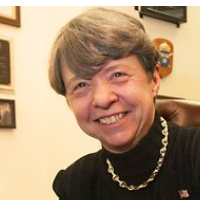SEC Cracks Down on “Bad Actors”…Except Proven Bad Actors are Exempted
 SEC Chair Mary Jo White
SEC Chair Mary Jo White
The Securities and Exchange Commission (SEC) has decided, despite a new law banning felons and other “bad actors” from being allowed to solicit investors nationwide for private securities placements, to exempt past bad actors from the bad actor ban.
The devil, of course, is in the details.
Although Congress ostensibly passed the Dodd-Frank Wall Street Reform Act of 2010 as a way to rein in the abuses that helped lead to the crash of 2008, many parts of the law actually benefitted the financial industry. Section 926, for example, makes it easier for issuers of securities to advertise private placements to investors nationwide by exempting them from SEC review. But Congress also limited this new exemption by barring persons convicted of securities fraud or related criminal or civil offenses from taking part.
On July 10, the SEC adopted agency rules, as it was required by the Act to do, to implement the new law, but it sneaked in an exemption that—at least for the next few years—effectively swallows up the rule. The SEC’s new rule 506(d)(1) tracks the Act by barring issuers with past fraud-related criminal convictions, civil verdicts or regulatory actions from receiving an exemption.
But Section 506(d)(2) ventures into new territory. It provides that the disqualification “shall not apply with respect to any conviction, order, judgment…or ban that occurred or was issued before” 60 days after publication of the amended rule in the Federal Register. In other words, the ban will not be retroactive, and all past fraudsters are exempt.
As Columbia Law School Professor John Coffee recently wrote, “Think what this actually means. A person convicted today of securities fraud could make [use of the exemption] when that rule becomes effective later this month. Put more bluntly, Bernie Madoff could use the rule (at least unless he had been otherwise enjoined).”
By introducing the exemption for past bad acts, Coffee argues, “the SEC is here acting, not simply as a weak-kneed enforcer, but rather as a generous Board of Pardons, granting immunity to those few persons that it has enjoined or held otherwise accountable within the last decade. If one were seeking to further tarnish an already compromised agency’s reputation and image, this would be the way to do it.”
The change, which was not in SEC’s original rule proposal, is not legally required, according to Coffee, because applying legal changes retroactively is inappropriate only when there is a vested right involved and new liability has been created. To the contrary, “bad actors” have long been barred from conducting nationwide general solicitations of investors without registration.
Coffee argues that the SEC’s action is “sadly symptomatic of the failures of the current SEC.”
-Matt Bewig
To Learn More:
SEC Exempts Bad Actors from Bad Actor Ban (by Corporate Crime Reporter)
'Bad Actors' and Worse Policy (by John C. Coffee, Jr., New York Law Journal)
- Top Stories
- Unusual News
- Where is the Money Going?
- Controversies
- U.S. and the World
- Appointments and Resignations
- Latest News
- What If China Invaded the United States?
- Donald Trump Has a Mental Health Problem and It Has a Name
- Trump Goes on Renaming Frenzy
- Trump Deports JD Vance and His Wife
- Trump Offers to Return Alaska to Russia






Comments